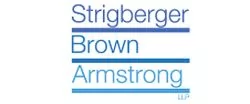On May 20, 2024, the Autonomous Vehicle Act ("AV Act") was enacted in the United Kingdom marking a transformative moment in the regulatory landscape for transportation as it is the first of its kind in any advanced country.
As autonomous vehicles (AVs) prepare to take to the roads, understanding the implications of liability under this new law will be helpful in forecasting how Canadian legislation will look in the years to come. The AV Act seeks to address the complexities and potential legal ambiguities associated with the use of AVs, aiming to ensure safety, accountability, and public trust in this emerging technology.
Liability Framework Under the AV Act
Shifting Liability to Manufacturers and Technology Providers
Under the AV Act, the liability for incidents involving AVs predominantly shifts from the individual "driver/operator", or what the act defines as "User-in-charge", to the manufacturers and operators of the autonomous systems. This shift reflects the reality that in a fully autonomous vehicle, the human occupant is not in control of the vehicle's operations.
Key Points of Liability Framework:
- Manufacturer Liability: If an autonomous vehicle is involved in an accident, the manufacturer may be held liable if the incident is found to be the result of a failure or defect in the vehicle's autonomous system. This includes software glitches, hardware malfunctions, or failures to meet the established safety standards.
- Operator and Service Provider Liability: Companies that provide autonomous driving systems or operate fleets of AVs can also be held accountable. This encompasses entities responsible for maintaining the vehicle's operational integrity, updating software, and ensuring compliance with safety protocols.
- Data and Evidence: In the event of an accident, AVs are required to have extensive data recording capabilities. This data is crucial for determining fault, as it provides detailed insights into the vehicle's operations before and during the incident.
Implications for Vehicle Owners
For owners and occupants of autonomous vehicles, the new liability framework offers a degree of legal protection and peace of mind. They are generally not held responsible for the actions of the vehicle while it is operating autonomously. However, this does not absolve owners from all responsibilities. They must ensure that the vehicle is properly maintained and that any manufacturer updates are implemented. Also, they will remain liable for any actions caused by the vehicle while the vehicle is in non-autonomous mode.
Also, owners of AVs may face fines or criminal charges where it found that the owner/operator used the AV in a dangerous manner or caused the AV to be tampered with by third parties.
Insurance Models Under the Act
The shift in liability necessitates a revaluation of traditional insurance models. Instead of insuring the driver, insurance policies will likely focus on the vehicle and its technology. Key aspects include:
- Comprehensive Manufacturer Insurance: Manufacturers may be required to carry comprehensive insurance policies to cover potential liabilities arising from system failures or defects.
- Consumer Insurance Adaptations: Vehicle owners might still need to hold insurance for situations where they are operating the vehicle in a non-autonomous mode or for general vehicle ownership risks.
- Liability Insurance for Operators: Companies operating AV fleets will need to secure liability insurance to cover incidents involving their vehicles.
Legal and Ethical Considerations
While the Act provides a clear framework for liability, several legal and ethical considerations remain:
- Determining Fault: Establishing fault in accidents involving AVs can be complex. It requires detailed analysis of vehicle data, software algorithms, and external factors.
- Mixed Traffic Scenarios: During the transition period where AVs and human-driven vehicles share the road, mixed liability cases could arise. These scenarios may involve determining the extent to which human error versus technological failure contributed to an incident.
- Ethical Implications: The ethical programming of AVs, such as decision-making in unavoidable accident scenarios, raises significant questions. How AVs are programmed to prioritize certain outcomes over others can have profound ethical implications.
- Consumer Trust and Acceptance: Ensuring that the public understands and trusts the liability framework is crucial for the widespread adoption of AVs. Transparent communication about how liability is handled can help build consumer confidence.
Conclusion
The UK Government has indicated that the AV Act is only the beginning as it has committed to launching a comprehensive programme of secondary legislation that will build up a new regulatory framework piece by piece. It is likely that Canada, and other common law countries, will look to the AV Act, and the UK's experience of same, as the cornerstone in which to build their own legislative schemes around AVs, if and when the time comes.
The successful implementation of an AV law will depend on the collaborative efforts of legislators, manufacturers, insurers, and the public to navigate the complexities of autonomous vehicle liabilities.
See Automated Vehicles Act 2024, 2024 c. 10
The content of this article is intended to provide a general guide to the subject matter. Specialist advice should be sought about your specific circumstances.
We operate a free-to-view policy, asking only that you register in order to read all of our content. Please login or register to view the rest of this article.


